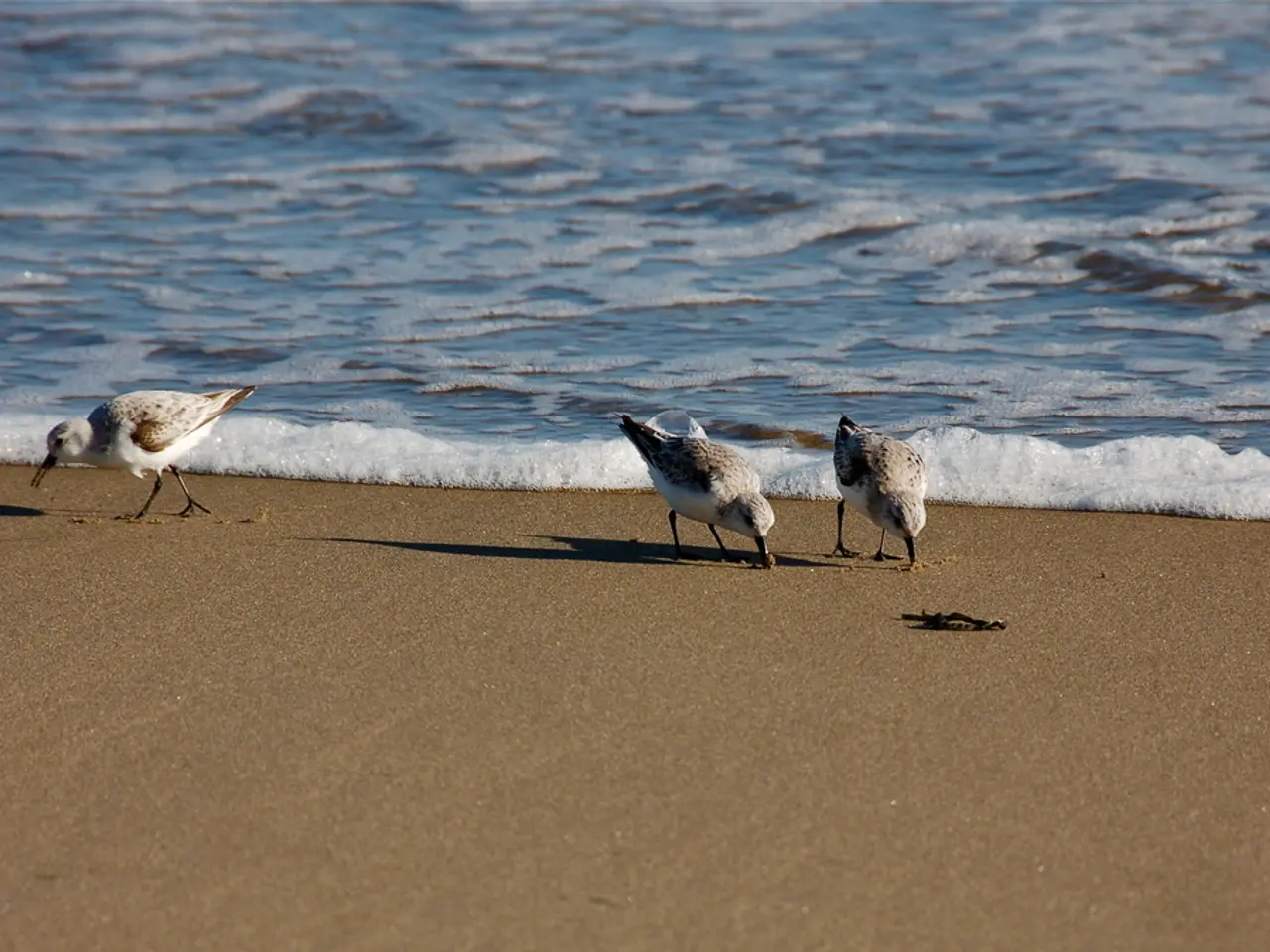The native Saudi Arabian bird species, the Asir Magpie, finds itself listed as endangered by the International Union for Conservation of Nature (IUCN)
The Asir magpie (Pica asirensis), the only bird species endemic to Saudi Arabia, is known for its unique and melodious sounds, distinctive large, dome-shaped nests, and easily recognizable black and white feathers. This fascinating bird is the focus of a chapter in Aramco's 2021 book "The Birds of Saudi Arabia."
The Asir magpie is a rare bird, classified as "endangered" on the Red List of Threatened Species of the International Union for the Conservation of Nature (IUCN). The current estimate suggests that approximately 100 breeding pairs of Asir magpies remain, which is roughly 200 adults. These birds are found only in a few small patches in the mountains of the Asir region in Saudi Arabia's southwest.
The Asir magpie is considered one of the rarest birds on the planet. Its population has been dwindling due to several factors, with climate change being the primary threat. Rising temperatures and arid weather conditions over the past decades have limited the Asir magpie's natural range.
Climate change isn't the only challenge facing these birds. The Asir magpie's habitat is under threat from human activities, including habitat loss, human disturbance, and prey shortage. These factors have also contributed to the decline of other rare bird species, such as the Asir goshawk.
Despite the challenges, the Asir magpie is known for its high intelligence and ability to recognize itself in a mirror. This intelligence is perhaps a testament to the bird's resilience and the hope that it may yet find a way to adapt and survive in the face of adversity.
The Asir magpie is not alone in its endangered status among the species of the Arabian Peninsula. The Aramco book mentions 18 other species that are largely or entirely confined to this region. Among these are the Arabian sunbird, the Arabian babbler, the Arabian scops owl, the rare Arabian grosbeak, and the Arabian woodpecker.
The preservation of these unique species is a matter of national and global importance. Efforts are underway to protect the Asir magpie and its habitats, ensuring that this remarkable bird continues to enchant us with its melodious sounds for generations to come.
Read also:
- Peptide YY (PYY): Exploring its Role in Appetite Suppression, Intestinal Health, and Cognitive Links
- Toddler Health: Rotavirus Signs, Origins, and Potential Complications
- Digestive issues and heart discomfort: Root causes and associated health conditions
- House Infernos: Deadly Hazards Surpassing the Flames








